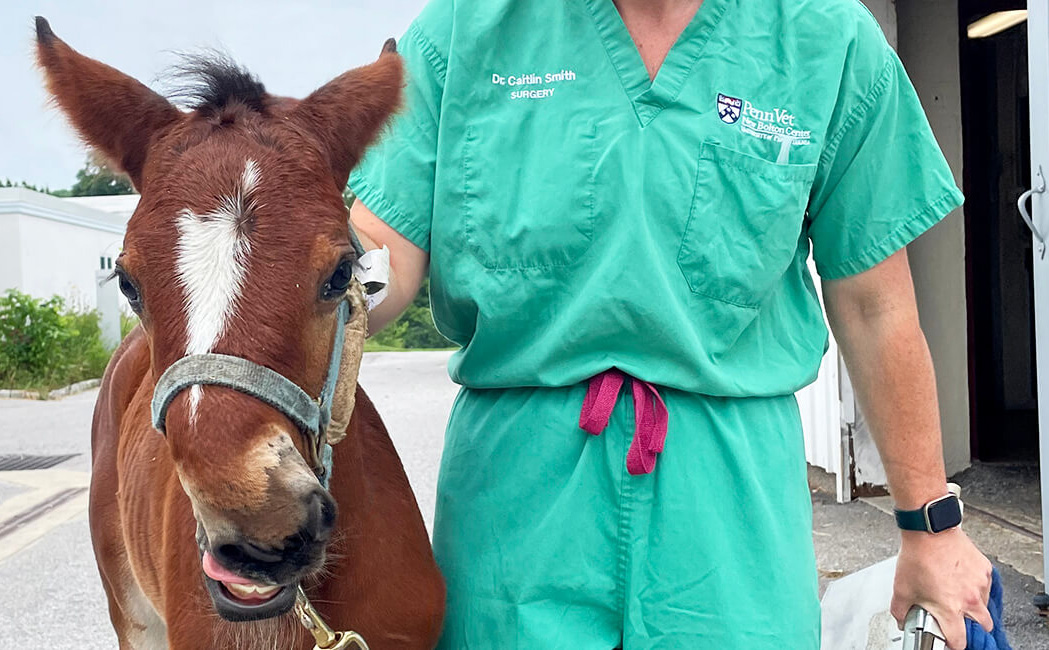From the very beginning, there was something special about Coco Chanel 23. And it wasn’t just that the filly was born with a 45-degree twist to her muzzle.
Foaled in May, the Standardbred newborn had a vibrant energy—a sweetness and a strength. While her facial deviation—clinically known as Wry nose—made it difficult for her to nurse no matter how many times she tried, she kept trying. With one nostril completely closed, she struggled to breathe but still found it within herself to nuzzle her dam, Coco, and to cheerfully greet the humans who’d assisted in her birth.
It was clear the filly could not live a comfortable life without major medical intervention. And even if that went well, it was extremely unlikely that she would be able live up to her potential as an equine athlete. But that didn’t matter to her owner, Matt Morrison of Morrison Racing.
Shortly after her arrival into the world, the veterinarian who assisted in Coco Chanel 23’s foaling contacted Morrison to alert him to the filly’s extreme deformity. Even with possible surgical intervention, it was unclear if she’d ever live a comfortable life. The foal’s future was in Morrison’s hands, and he knew what the general response was for this type of condition in such a young horse: “‘They’d say, ‘The best thing is to put ‘em down,’” Morrison says.
But Morrison didn’t want to euthanize the filly. His teenage daughter agreed, saying they had to at least give the foal a chance.
“There was a fight in her. She didn’t know she was abnormal. She just knew she needed to feed and was persistent,” he says. “Without that fighting spirit, she probably wouldn’t have survived that first weekend.”
Fittingly, the Morrisons gave the filly a different nickname: Wry Not.
Armed with her steely tenacity, Wry Not was sent to Penn’s School of Veterinary Medicine’s (Penn Vet) New Bolton Center, the large animal hospital, where a multidisciplinary team of clinical specialists were prepping to give her a shot at a long, healthy life.
Wry nose, especially cases as severe as Wry Not’s, are not common. The filly’s surgical team, Kyla Ortved and Jose Garcia-Lopez, say they’ve each seen at most three cases.
“It was a severe deviation, the most extreme that I’d ever seen,” Garcia-Lopez says. “Where it was bent also made (surgery) more complicated.”
Before the surgeons could plot the best ways forward, doctors took a scan of the filly’s muzzle using New Bolton Center’s OmniTom, a mobile CT scanner that delivers high quality, point-of-care imaging. They also collected some blood from Coco for a transfusion that Wry Not would eventually need to make it through the procedure successfully.
“There wasn’t a lot of room for error,” Garcia-Lopez recalls. “There was a lot of measuring and careful cutting.”
This story is by Natalie Pompilio. Read more at Penn Vet News.








